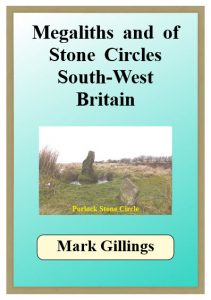THIS PAPER CALLS ATTENTION TO A PREVIOUSLY NEGLECTED ELEMENT OF THE BROAD REPERTOIRE OF MONUMENTAL MEGALITHIC STRUCTURES that characterize the later third and second millennia BC across the British Isles – extremely small standing stones. Despite their frequency and the complex arrangements and associations they embody, these miniliths are rarely recorded in detail and frequently marginalized to a generic background.
As a result, they are largely absent from interpretative accounts. Drawing upon recent debates regarding materiality and monument form, alongside the results of excavations explicitly targeting tiny stone settings, the discussion argues that the phenomenon of raising and fixing small uprights was not only widespread and persistent, but sheds important light upon the beliefs and ideas driving monument construction during the later Neolithic and Bronze Ages.
